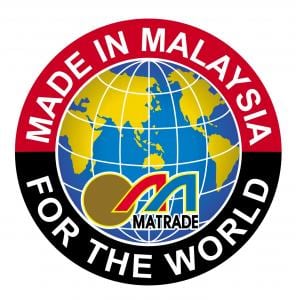| A higher calling
Kosher
and halal meats are gaining popularity among both growing U.S. Jewish
and Muslim populations as well as non-religious consumer groups.
By Stephanie Soong, contributing editor
Kosher
and halal meats may represent a small sliver of the overall meat
market, but there are opportunities within each category, should the
spirit move processors to take advantage.
According to market
research firm Mintel, kosher product sales have increased by 64 percent
between 2003 and 2008, reaching $12.5 billion in 2008.
The
Islamic Food & Nutrition Council of America estimates the halal
market is worth $17.6 billion, at least 20 percent accounting for meat
and poultry.
Not bad, considering how small the U.S. Jewish and
Muslim populations are. According to market research firm Packaged
Facts, less than 2 percent of the U.S. population is Jewish, and the
Muslim population represents less than 1 percent.
But there are
a growing number of non-Jewish and non-Muslim consumers who are turning
to kosher and halal foods, particularly meat, since both types of meat
have to meet stringent standards.
Halal meat, for example, does
not include pork and pork byproducts, improperly slaughtered animals or
animals that are dead before slaughter.
Kosher meats also
undergo inspection for signs of disease, and the meat is soaked in salt
to draw out blood and other impurities. Both forms of ritual slaughter
emphasize respect for the animal.
“Non-kosher consumers look for [kosher meat] because they trust it,” says Marcia Mogelonsky, senior analyst at Mintel.
Not
that it’s been easy to buy kosher meats since the fall of Postville,
Iowa-based Agriprocessors, once the largest kosher slaughtering company
in the United States. A massive Immigration and Customs Enforcement
raid and subsequent legal and financial problems there sparked a kosher
meat shortage.
Smaller processors have worked to fill the void,
says Avrom Pollak, president of kosher certification agency Star-K.
But, he warns, while there’s a need for more kosher processing,
entering the category is not easy.
“For the big plants, unless
they are designed to do kosher, it’s not going to work well,” he
explains. “These additional requirements take time.”
While
halal meats share similar requirements as kosher, it’s relatively easy
for a processor to get certified as a halal producer, according to
Muhammad Munir Chaudry, president of IFANCA.
And since most
halal meats are also generally produced through smaller plants, with
the exception of Cargill in Canada, there is room for a U.S. leader to
emerge. “It’s an underserved market,” Chaudry explains.
* * *
Highlighting halal
While
kosher has seemed to come into its own as a mainstream food category,
halal goods also have evolved to become an increasingly significant
force in the food industry.
According to recent numbers from
the nonprofit Islamic Food and Nutrition Council of America (IFANCA),
there are about 8 million Muslims in the United States who contribute
an estimated $17.6 billion to the food industry. At least 20 percent,
or $3.5 billion, accounts for meat and poultry bought at supermarkets,
ethnic stores and restaurants.
Still, despite the promise the
halal market holds, these foods have a long way to go in terms of going
mainstream, says IFANCA President Muhammad Munir Chaudry.
One
obstacle is the lack of agreement about what constitutes halal meat.
Although there are certain slaughtering requirements that are absolute
— the slaughterer must be a good Muslim and must say the name of God
before cutting the animal’s throat — points of debate include how the
throat should be cut and whether the animal should be facing Mecca.
IFANCA
is working to ensure a more streamlined halal slaughtering and
certification process with such measures as collaborating with
companies to supervise specially trained slaughtering staff. “We hope
in the next 20 years we’ll be quite strict in what we do,” says Chaudry.
* * *
Q+A: TALKING KOSHER
Kosher
meat must come from a cloven-hooved, cud-chewing animal; it has to come
from the animal’s forequarters; and it has to undergo a special process
to adhere to Jewish dietary laws. Avrom Pollak, president of
Baltimore-based kosher certifying agency Star-K, offers deeper insights
into how meat is certified kosher.
What does the kosher slaughter process entail?
The
way the animals are raised doesn’t matter as far as kosher is
concerned. When it comes to the actual slaughter, only a ritual
slaughterer, or a shochet, can do it. He uses a very sharp knife with
no nicks. The most popular method is to have a pen where the animal is
restrained and a chin lift so it can’t move. He would then swiftly cut
into the neck, severing the trachea, esophagus, jugular vein and
carotid artery.
What happens after slaughter?
There
is an inspection of the lungs and other organs to make sure there are
no perforations [and adhesions]. If [product has] none of these, it’s
glatt kosher, which is the best form of kosher. It also needs to be
soaked and salted to remove residual blood. After it’s rinsed, it’s
ready to be distributed. [This detailed process] is why kosher beef
costs more.
If companies are interested in offering kosher meat, what should they do?
They
need to speak to someone knowledgeable to make sure the certification
they do is going to have good acceptance. You also have to have a good
understanding of what the process entails and have a good marketing
program for the nonkosher forequarters and hinds.
What does the future hold for kosher meat?
The
market is growing. There’s a perception that a kosher-certified product
has enhanced value. Many people who are not Jewish believe kosher is
better. People like the idea that there’s another pair of eyes
overlooking the process.
* * *
What’s New
In the game
South
Dakota-based Noah’s Ark Processors introduced the first commercially
available kosher elk line under its Solomon’s Finest Glatt Kosher
brand. The company, which has been raising elk for more than a decade,
sells the meat for an average of $8 per pound.
That’s insane!
Online
retailer InsaneJerky.com has added a new Kippered Beef line to its
product mix. Made from 95 percent lean halal-certified beef, the line
comprises three flavors: original, Jamaican-style and spicy. Each
2-ounce package retails for $3.99.
* * *
Sacred subs
With
kosher and halal food lining the shelves of supermarkets and
independent grocery stores, it was only a matter of time before these
foods hit the mainstream foodservice world, too.
Boston-based
Uno Chicago Grill, for one, opened a halal location in Dubai in
January, and in February unveiled its second location in Kuwait City.
Milford,
Conn.-based sandwich giant Subway has been making a strong effort to
open kosher and halal locations both in the United States and abroad.
The chain has 12 domestic kosher units and is pursuing three U.S. halal
units.
“What’s nice about our system is we can pull something
out and put something in,” says Subway Operations Specialist Tim
Miller, who says the chain was first approached in 2006 by franchisees
looking to open a location in a Cleveland Jewish community center.
At
a kosher Subway, for example, all pork products must be pulled, so
bacon is replaced with beef fry, a kosher version of the crispy treat,
and ham is replaced with turkey ham.
“We look at it as a way to
serve our customer base,” Miller adds, “and if that means making menu
items conversions, we’re all for doing it.”
Adding kosher and
halal menus isn’t a task to be taken lightly, says Kevin Higar, senior
manager at restaurant consultancy Technomic. Among the considerations
are proximity to the target audience, supply consistency and pricing,
since kosher ingredients can be expensive.
“Everybody’s operation model is different,” Higar says. “Don’t chase a trend for the sake of it being a trend.”
* * *
Stepping it up
It
was like a soap opera: Agriprocessors, once the largest kosher
slaughterhouse in the country, met scandal after scandal following a
raid in May 2008 by the Immigration and Customs Enforcement agency. The
raid opened a Pandora’s box, from illegal immigration issues and child
labor violations to financial woes.
Following the Postville,
Iowa, company’s fall, retailers reported major shortages of kosher
meats. A recent report by market research firm Mintel estimates that
sales of kosher meat declined from $650 million before the ICE raid at
Agriprocessors to $45 million afterwards.
“There was a huge
drop,” says Marcia Mogelonsky, senior analyst at Mintel, who adds it’s
tough to say how big the kosher meat market is now. “There have been a
lot [more] smaller processors out there.”
“New players in the
kosher beef business include the owners of Empire Poultry,” says Avrom
Pollak, president of kosher certifying agency Star-K in Baltimore.
“When there’s opportunity, people will take advantage of it.”
The
kosher meat supply has also been supplanted by foreign imports, but, as
Pollak notes, consumers tend to favor the taste of corn-fed American
beef.
While Agriprocessors is trying to pick up the pieces with
a new owner, SHF Industries LLC in Iowa, it’s too early to say how the
former market leader’s soap opera will end. But the opportunities are
still there. “There is a need for more kosher packing plants,” Pollak
adds. |


